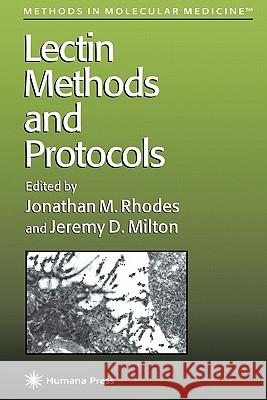Lectin Methods and Protocols » książka
Lectin Methods and Protocols
ISBN-13: 9781617370243 / Angielski / Miękka / 2010 / 616 str.
Lectins have in the past been regarded by many scientists as curious proteins of uncertain structure and specificity that bind to carbohydrates of dubious significance themselves. All this is rapidly changing. The functional importance of glycosylation in cell-cell and cell-pathogen interactions, as well as intracellular events, has been recognized by the explosion of the science of glycobiology. This has been paralleled by the realization that lectins, once they have been well characterized, can be extremely useful tools for exam- ing structural changes in glycosylation and their functional consequences for human pathophysiology. Different lectins vary considerably in their degree of specificity. Some, such as wheatgerm agglutinin, have fairly broad specificity (for glucosamine or sialic acid), whereas others, such as Maackia amurensis, are specific not only for a single carbohydrate, but also for its linkage (2-3 linked sialic acid). Lectins with relatively broad specificity may be very useful as an adjunct to isolation or quantification of soluble glycoproteins, whereas lectins of known, and precise, specificity will be more useful for characterization of carbo- drate structure. We have included an appendix in Lectin Methods and Pro- cols that provides the known specificities of all lectins cited in the text.











